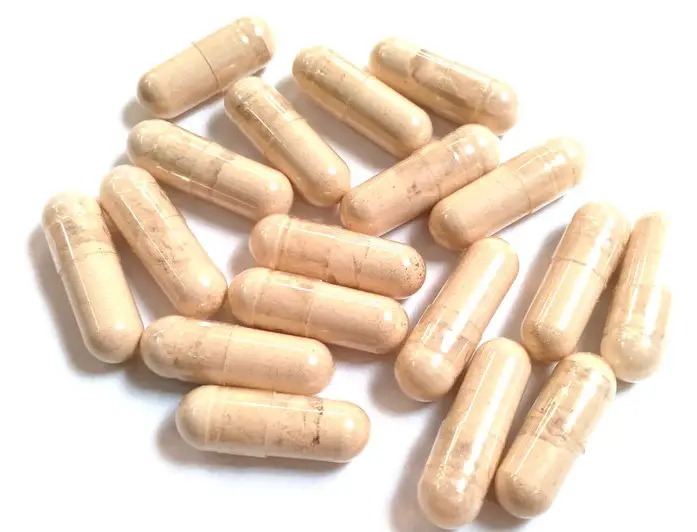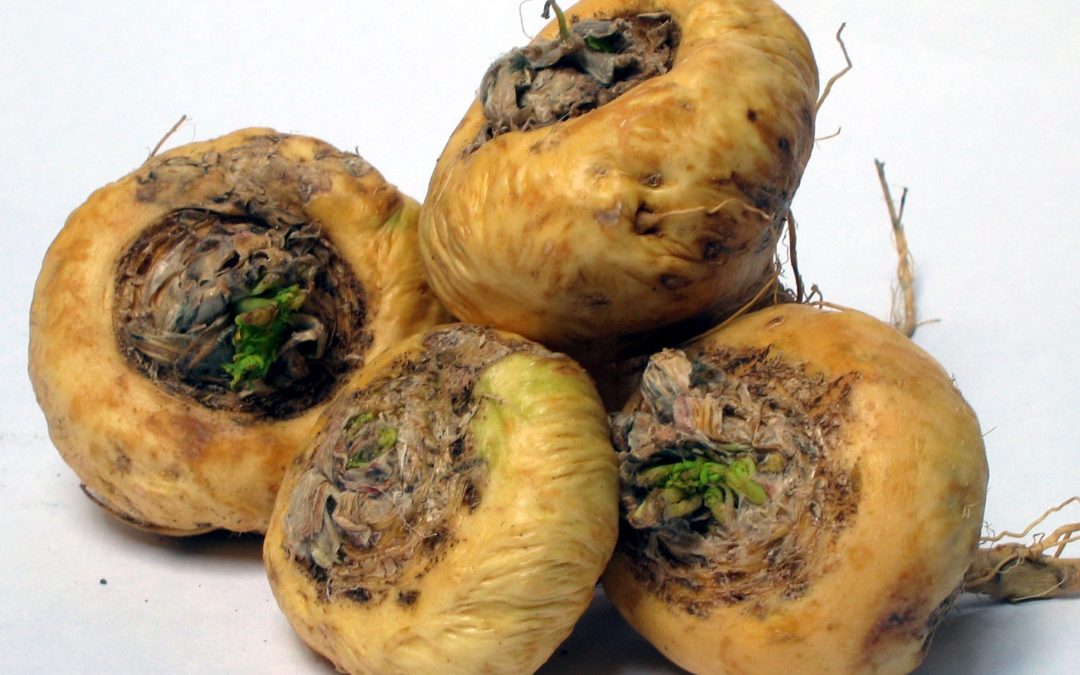Is Maca Safe While Breastfeeding? A Quick Guide for Mothers

ListedFit is reader-supported. When you buy through links on our site, we may earn a small commission.
Breastfeeding mothers often have concerns about the safety of various foods and supplements they consume, and maca root is no exception.
Maca root is a vegetable native to the Andes Mountains in Peru, commonly known as Peruvian ginseng or Lepidium meyenii, and is related to cabbage and kale.
This root vegetable has gained popularity as a superfood, as it is rich in minerals, fiber, and unique compounds called macamides. It is often consumed in the form of maca powder, which can be added to various foods and beverages.

The health benefits attributed to maca root include increased energy levels, reduced stress, improved mood, and enhanced libido. But when it comes to breastfeeding mothers, the question arises: is consuming maca root safe?
While some studies and traditional practices in Peru suggest that it may be safe, it is essential to understand possible side effects, precautions, and the latest research on maca root and breastfeeding.
Key Takeaways
- Maca root is a nutritious superfood with potential health benefits for energy, mood, and libido.
- The safety of consuming maca root while breastfeeding remains a topic of debate and research.
- Consult a qualified care provider before taking maca root during breastfeeding to evaluate potential risks and benefits.
Table of Contents
Understanding Maca and its Health Benefits
Maca, a root vegetable native to the Andes Mountains in South America, has been used for centuries for its numerous health benefits. This amazing little plant is considered an adaptogen, which means it helps your body adapt to various stressors, improving your overall health and well-being.
You might have heard about maca’s potential positive effects on fertility in both men and women. Research has indeed suggested that maca may enhance fertility, boost energy levels and stamina, and support a healthy immune system. Besides its fertility-enhancing properties, taking maca as a dietary supplement has many other health benefits.
One of the reasons why you should consider incorporating maca into your diet is that it’s packed with essential nutrients, such as vitamins and minerals. Maca is a great source of protein, healthy fats, and calcium, all of which play a crucial role in maintaining optimal health.
Feeling a bit low? This wonder herb might just be what you need to elevate your mood! That’s right, maca has been known to have a positive impact on mood and mental well-being. By including maca capsules or powder into your daily nutrition regimen, you might start to notice improvements in your overall mood.
Another fantastic aspect of maca is its potential role in reducing inflammation. This potent root is rich in nutrients that have been shown to help alleviate inflammation within the body. By supporting your immune system and addressing inflammation, you’re paving the way for a happier, healthier you!
In conclusion, maca is a versatile plant that has a myriad of health benefits. Whether you’re looking to support your fertility, boost your mood, or improve your overall health, maca could be the natural supplement you’ve been searching for. Just remember to always consult with a healthcare professional before starting any new dietary supplement, as individual needs and situations can vary.
Is Maca Safe for Breastfeeding Mothers?
Maca is a popular natural supplement that is hailed for its potential benefits in boosting energy, balancing hormones, and promoting general well-being. You might be wondering if it is safe to consume maca while breastfeeding.
According to some, maca root is considered safe for breastfeeding mothers and is believed to be beneficial for energy and hormone balance. However, it is always best to start with a smaller dosage and gradually increase it. This will help you monitor how your body reacts to the supplement and make any necessary adjustments.
When it comes to maca root and lactation, there is some belief that it might have a positive impact on milk production. However, this has not been extensively studied, and more research is needed to be certain about this effect. Nevertheless, there is anecdotal evidence from nursing mothers who have reported an increase in their milk supply after consuming maca root.
As with any natural remedy or supplement, it is essential to consult your healthcare professional or paediatrician before incorporating maca into your routine, especially when breastfeeding. They can help determine the right dosage for you and guide you on the most appropriate way to use maca root in your specific situation.
It is worth noting that while maca root is generally considered safe, there might be individual differences in how people react to it. Some might experience adverse effects while others have no issues. Listen to your body and pay attention to any changes in the quantity or quality of your milk, as well as your baby’s behaviour and well-being.
To summarise, maca root is a natural supplement with potential energy-boosting and hormone-balancing properties that may be safe to consume while breastfeeding. However, it is essential to consult your healthcare provider or paediatrician before taking maca root or any other supplement during this crucial period.
Possible Side Effects and Precautions

While maca is generally considered safe for breastfeeding mothers, it’s crucial to be aware of the possible side effects and take certain precautions. Always consult your doctor, physician, or health practitioner before introducing maca to your diet.
Some reported side effects of maca include menstrual cycle irregularities, stomach cramps, moodiness, and insomnia. It’s worth noting that maca may also change the taste of breast milk, but this is common with many foods, so it shouldn’t be a cause for concern.
When it comes to the quality of maca products, the FDA does not regulate supplements like maca, so it’s essential to choose a reputable brand.
Look for organic raw maca powder or cooked maca, as it may have lower levels of toxins and heavy metals. Additionally, ensure that the product you select has been tested and approved by paediatricians or health practitioners.
In general, avoid consuming an excessive amount of maca, as it is an aphrodisiac and has been used to treat menopausal symptoms and benign prostatic hyperplasia. While these properties may not directly affect breastfeeding mothers, it’s wise to err on the side of caution.
Scientific Research and Clinical Studies

As you seek to understand the safety of maca while breastfeeding, it’s important to consider the available scientific research and clinical studies on this topic. Most studies on maca have focused on its potential health benefits rather than solely on breastfeeding safety. But there’s still valuable information to be gleaned from these studies.
When it comes to human studies, the efficacy of maca as a dietary supplement has been researched quite thoroughly. For example, some studies have shown that maca can help with improving mood and concentration in adults. Additionally, maca has been used for medicinal purposes in traditional Peruvian culture for centuries. It’s believed to provide essential vitamins and nutrients that can boost mental health and immunity.
As for animal studies, some research has been conducted on the potential effects of maca supplementation during pregnancy and lactation in rodents. Although these findings may not directly translate to humans, they can still provide useful insights. However, it’s important to keep in mind that more research is needed to fully establish maca’s safety during breastfeeding.
Regarding dosage, there is no universally recommended dose of maca for lactating mothers, and the appropriate dose may vary based on individual needs. It’s best to follow the guidelines provided on the specific maca product you’re using, and always consult a healthcare professional for personalised medical advice.
In summary, while there is evidence supporting the use of maca for its health benefits, more research is needed to establish specific safety guidelines for breastfeeding mothers. As always, consult with your healthcare provider before introducing new dietary supplements into your routine, especially while breastfeeding.
Frequently Asked Questions
Is it safe to consume maca root during breastfeeding?
Yes, it is generally considered safe to consume maca root while breastfeeding.
Maca is a superfood packed with vitamins and minerals, known to be beneficial for energy and hormone balance.
However, it’s recommended to start with smaller doses and increase gradually.
Additionally, using maca with caution and under the guidance of a qualified care provider is advisable.
Does maca root have any impact on breast milk production?
There is not much evidence available about the direct impact of maca root on breast milk production.
However, maca root is known for its hormone-regulating properties, which could potentially help with milk supply if hormonal imbalances are a contributing factor.
Can maca root be taken postpartum?
Yes, maca root can be taken postpartum. It is known for its energy-boosting properties and may help new mothers cope with the demands of parenthood. Ensure you start with a small dose and gradually increase as needed.
Are there any alternatives to maca root that can be safely used while breastfeeding?
Some alternatives to maca root include fenugreek, blessed thistle, and fennel seeds, which are commonly used as galactagogues (substances that promote milk production).
However, it’s essential to consult with your healthcare provider before trying any new supplements, especially while breastfeeding.
What is the recommended maca root dosage for nursing mothers?
The recommended maca root dosage for nursing mothers is 3 grams (less than a teaspoon) per day. This dosage can be taken for up to 4 months. Some sources suggest starting with 1/2 – 1 tsp or 3-5 capsules daily. As individual needs may vary, consult your healthcare provider for personalised advice.
Are there any specific groups who should avoid using maca root?
Maca should be used with caution by people with hormone-sensitive conditions, as it may affect hormone levels. Additionally, if you are allergic to maca root or any of its components, you should avoid using it. It’s always a good idea to consult your healthcare provider before starting any new supplement, particularly during pregnancy or breastfeeding.
Author
-
Stuart Patrick is a health and fitness lifestyle journalist who writes for ListedFit.com.
“I've spent a lot of time trying to get in shape and change my body and I realised there are so many untruths in the health and fitness industry that can slow down or stop your progress, so I share my knowledge and experience to help others to cut through the BS.”
Latest entries
 GearApril 6, 2024HOKA Kawana 2 Review – Are These The Best HOKA Gym Shoes?
GearApril 6, 2024HOKA Kawana 2 Review – Are These The Best HOKA Gym Shoes? CrossFitApril 4, 2024How Many Pull-Ups Should I Do Daily? Let’s Figure it Out…
CrossFitApril 4, 2024How Many Pull-Ups Should I Do Daily? Let’s Figure it Out… MacaMarch 17, 2024Which is Better: Black or Red Maca? Comparing Benefits and Uses
MacaMarch 17, 2024Which is Better: Black or Red Maca? Comparing Benefits and Uses FitnessFebruary 18, 2024Join the Discount Club Today!
FitnessFebruary 18, 2024Join the Discount Club Today!
Affiliates:
This post may contain affiliate links that at no additional cost to you, the site may earn a small commission. We only recommend products we would use ourselves and all opinions expressed on this site are our own.
General Advice:
The information provided in this article is for general informational purposes only. It is not intended as a substitute for professional advice. Always consult with a qualified healthcare professional before starting any new diet, exercise program, or making changes to your health routine.
Accuracy Advice:
While we strive to provide up-to-date and accurate information, the content in this article may not reflect the most current research or medical guidelines. We encourage readers to do further research and consult with professionals for more personalized advice.
Our Recommendations:
The products and services mentioned in any of our articles are recommended based on our independent research and personal experience. We are not sponsored by any company. We aim to suggest products and services we believe are of high quality and could be beneficial to our readers.





